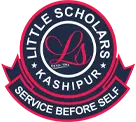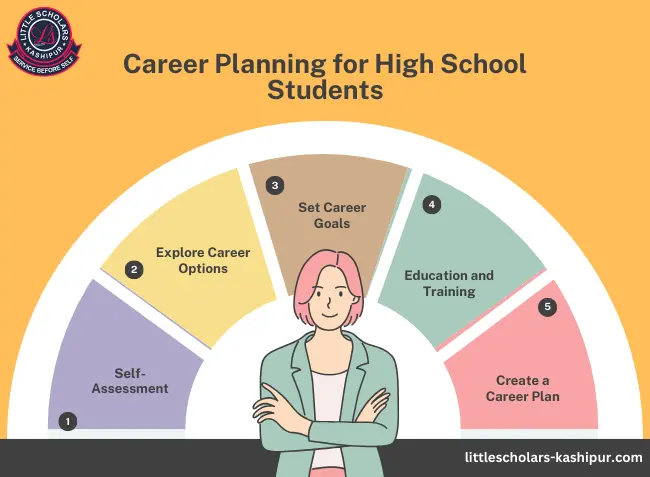Career planning in high school is an essential step in setting the foundation for a successful future. By identifying interests, strengths, and goals early on, students can make informed decisions about their education and career paths. This process involves self-assessment, exploring career options, setting achievable goals, and gaining relevant skills and experiences. Starting this journey in high school ensures students are well-prepared and confident as they transition into higher education and the workforce.
What is Career Planning for students?
Career planning is a systematic process that helps individuals understand their interests, abilities, and values to make informed decisions about their future career paths. It involves setting career goals, identifying the necessary steps to achieve those goals, and continuously evaluating and adjusting plans as needed.
Importance of Career Planning for High School Students
For high school students, career planning is crucial as it lays the foundation for their future professional lives. It helps them understand what they are passionate about, what they are good at, and how they can turn their interests and skills into a fulfilling career. Early career planning can lead to better academic performance, higher engagement in school activities, and a clearer sense of direction after graduation.
Overview of the Career Planning Process
The career planning process typically involves several stages: self-assessment, exploring career options, setting career goals, acquiring the necessary education and training, gaining relevant skills and experience, creating a career plan, and continuously reviewing and adapting the plan. Each stage is essential for building a comprehensive and adaptable career strategy.
How do I plan my career in school?
Planning your career while still in school is crucial to a successful future. This process involves self-assessment, exploring career options, setting clear goals, acquiring the necessary education and training, building relevant skills and experience, and creating a flexible career plan. Here’s a brief guide to help you navigate each step:
1. Self-Assessment
Identifying Strengths and Weaknesses
a.Self-evaluation, feedback, and assessments.
b.Recognize weaknesses for improvement and strengths for career selection.
Assessing Interests and Passions
A. Explore subjects, extracurricular activities, and hobbies.
B. Decide for a satisfying and joyful profession.
Personality Tests and Career Aptitude Tests
A. Use tools like MBTI, Holland Code (RIASEC), and Strong Interest Inventory.
B. Understand the personality, work preferences, and suitable careers.
2. Exploring Career Options
Researching Different Career Paths
A. Understand professions, qualifications, and career growth.
B. Make use of career fairs, informational interviews, and internet tools.
Understanding Market Job Trends
Study demand, average pay, and future employment opportunities.
B. Choose a career with stability and growth potential.
Job Shadowing and Internships
A. Get practical experience and knowledge about various professions.
B. Assess the fit of various career paths.
Read also: Top 10 Study Tips for High School Students
3. Setting Career Goals
Short-term vs. Long-term Goals
A. Short-term: immediate aims (courses, certifications).
B. Long-term: comprehensive goals (licensed professional).
SMART Goals Framework
A. Set Specific, Measurable, Achievable, Relevant, and Time-bound goals.
Example: Complete a bachelor's degree in computer science in 4 years with a GPA of 3.5+.
Importance of Goal Setting
A. It provides focus, drive, and a way to monitor progress.
B. Regularly revisit and adjust goals.
4. Education and Training
Choosing the Right High School Courses
A. Align courses with career interests and strengths.
Example: Advanced math and science for engineering.
College vs. Vocational Training
A. College: broader education, careers needing a degree.
B. Vocational training: specialized skills for technical/trade professions.
Importance of Continuing Education
A. Stay updated with industry trends through lifelong learning.
5. Building Skills and Experience
Extracurricular Activities and Clubs
A. Develop communication, teamwork, and leadership skills.
B. Create a well-rounded resume.
Volunteer Work and Community Service
A. Gain experience, develop empathy, and build a network.
B. Show commitment to social responsibility.
Part-time Jobs and Internships
A. Acquire practical work experience and understand professional environments.
6. Creating a Career Plan
Steps to Develop a Career Plan
A. Conduct self-assessment, explore options, set goals, identify education/training, gain experience, and review/adjust plan.
Reviewing and Adjusting the Plan
A. Ensure relevance and alignment with evolving interests and goals.
Importance of Flexibility in Career Planning
A. Adapt to changes and new opportunities for continuous growth.
7. Financial Planning
Understanding the Cost of Education
A. Research expenses (tuition, books, living costs) and plan accordingly.
Scholarships, Grants, and Financial Aid
A. Explore funding opportunities, apply for aid, and understand requirements.
Budgeting and Saving for the Future
A. Create a budget, track expenses, and save for financial stability.
8. Seeking Guidance and Support
Role of Parents and Family
A. Provide support, guidance, and encouragement.
School Counselors and Career Advisors
A. Offer information and assessments, and help with career planning.
Mentorship and Networking
A. Seek advice, share experiences, and build connections.
9. Making Informed Decisions
Evaluating Career Information
A. Consider job responsibilities, qualifications, growth, and market trends.
Decision-Making Strategies
A. Gather information, weigh options, consider consequences, and seek advice.
Avoiding Common Career Planning Mistakes
A. Avoid blindly following trends, neglecting interests, and underestimating education and experience.
10. Preparing for the Job Market
Resume Writing Tips
A. Highlight skills, experiences, and achievements; use a professional format.
Crafting a Compelling Cover Letter
A. Personalize, highlight relevant experiences and explain fit for the position.
Interview Preparation and Techniques
A. Research the company, practice answers, and follow up with a thank-you note.
11. Adapting to Changes
Coping with Career Changes and Challenges
A. Develop resilience, and problem-solving skills, and seek support.
Importance of Lifelong Learning
A. Continuously update skills and knowledge.
Staying Updated with Industry Trends
A. Participate in conferences, read trade journals, and establish professional networks.
Conclusion
career planning for high school students involves a comprehensive process of self-assessment, exploring career options, setting goals, acquiring education and training, building skills and experience, creating a career plan, and continuously reviewing and adapting the plan. Financial planning, seeking guidance, making informed decisions, preparing for the job market, and adapting to changes are also crucial components of successful career planning.
Read also: 10 things you should know about personal learning environments




